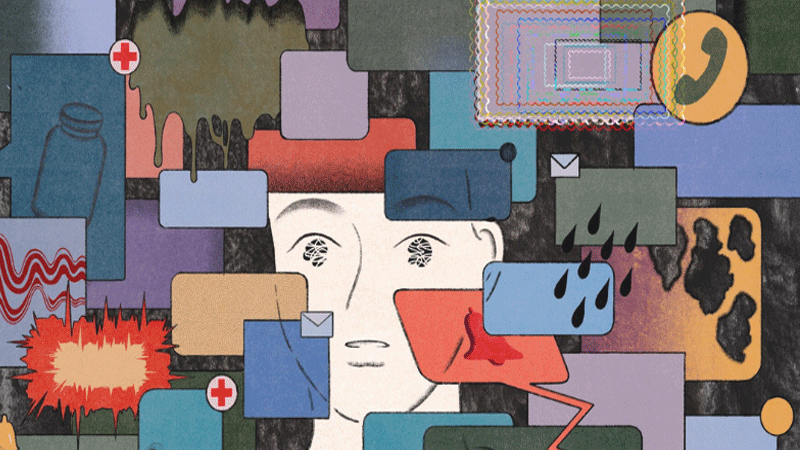Experts expressed concern over dearth of psychologists in Pakistan, the government’s indifference to issues related to mental health, and rising suicide rate among young people.

Experts caution that the rising number of child suicides in Pakistani schools, colleges, and universities is largely due to the increasing addiction to mobile gaming, parents’ failure to spend quality time with their families, and an irrationally high workload.
Experts expressed concern over dearth of psychologists in Pakistan, the government’s indifference to issues related to mental health, the rising suicide rate among young people, and the rise in drug addiction.
According to them, 35% of the population needed psychiatric assistance at some point in their lives, despite the fact that there was only one child psychologist for every 40 million children in the country despite the fact that psychiatric disorders were spreading rapidly.
Lecturers held at a one-day seminar at Sukkur IBA University titled “Mental Health: A Global Priority.” The program was organized by Hope for All Social Development Organization in partnership with Schizophrenia Outreach Larkana (SOL) and Khairpur Medical College according to press release.
The head of SOL, Dr. Badruddin Junejo, claimed that apart from mobile gaming addiction, domestic violence, social inequality, poverty, and other factors all contributed to mental illnesses, but that most people were unaware of these problems.
According to statistics from the World Health Organization for 2017, Pakistan had about 21 million people and a total of 342 psychologists, 478 psychiatric and mental health professionals, according to Dr. Zulfiqar Rahojo, a psychologist and the chairman of Sindh Progressive Thinkers Forum.
He claimed that 4% of Pakistani patients with various illnesses had mental health issues. Pakistan had a rate of 0.5, placing it in the lower middle of the world in terms of mental disorders.
He claimed that some of the main causes of mental illnesses were the current economic crisis, inequality, class, differences between urban and rural areas, and a lack of basic amenities. Only 2% of the budget was designated for the nation’s health sector, and only 0.4 % of this 2% was set aside for the care of mental illness, which was insufficient, according to him.
He claimed that only three of the country’s five psychiatric hospitals—located in Karachi, Hyderabad, and Lahore—were dedicated to the treatment of mental illnesses, while the majority of people lived in rural areas where they relied on age-old remedies, proverbial wisdom, and prescription drugs to treat their mental illnesses and blamed ghosts for their afflictions.
In addition to mobile gaming addiction, Dr. Harish Kumar Makheja, head of the Department of Psychology and Behavioral Sciences at Khairpur Medical College, said that parents’ failure to spend quality time with their families and an irrationally high workload on homework were some of the major factors for an increase in young people committing suicide in schools, colleges, and universities.
Since students were having trouble, he said, educational institutions would have to lighten the load on the kids’ studies, and parents would have to build good relationships with their kids and invest quality time in them.
The entire society, according to Rabia Mirza, chair of Hope for All Social Development Organization, is mired in depression, which breeds anarchy and gives young people the urge to use drugs or commit suicide.
Nobody, however, wanted to discuss it. “We have started a mental health awareness campaign to draw the attention of government and society,” the woman said.
Dr. Inayatullah Awan, head of the psychology department at GM College in Sukkur stated that the causes of mental illnesses in Pakistani society include poaching, gender inequality, tribal wars, floods, and epidemics.
According to him, inequality had caused significant issues for the underprivileged and marginalized members of society, and the lack of care and inadequate medical facilities had made matters worse.
A Supreme Court attorney named Ghulam Shabir Babar claimed that heinous crimes and terrorism in society were also caused by mental illnesses. He claimed that people with mental illnesses frequently fell into the world of crime.
The speakers called for a greater budgetary allocation for mental health as well as an increase in the number of public-private partnership institutions for mental health. They recommended that media campaigns be run to raise awareness of mental health issues and that changes be made to the law already in place.
They suggested that in order to protect kids from mental illnesses, the problem should be addressed in classrooms, communities, and institutions, and that psychologists should be given more resources and sent to small towns and rural areas.